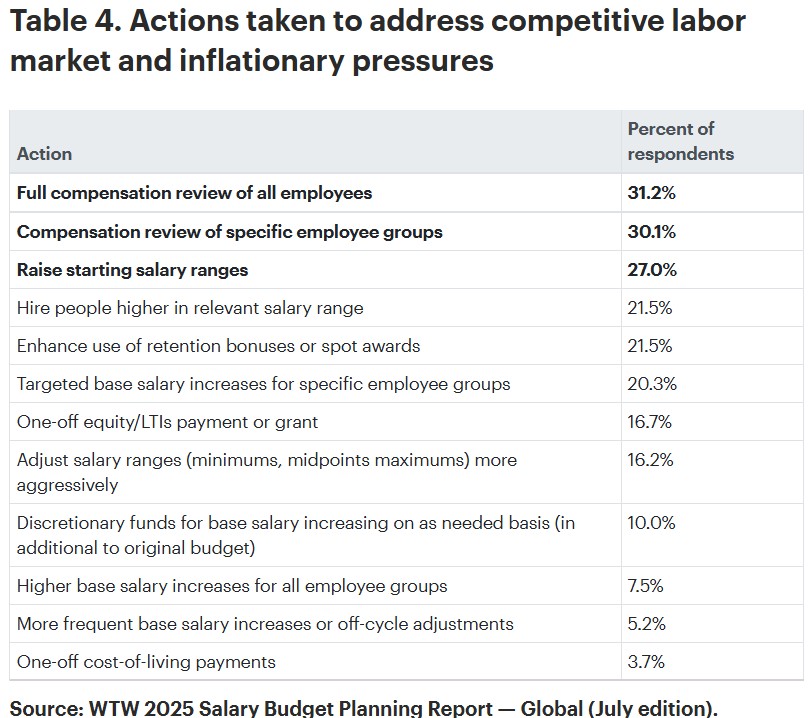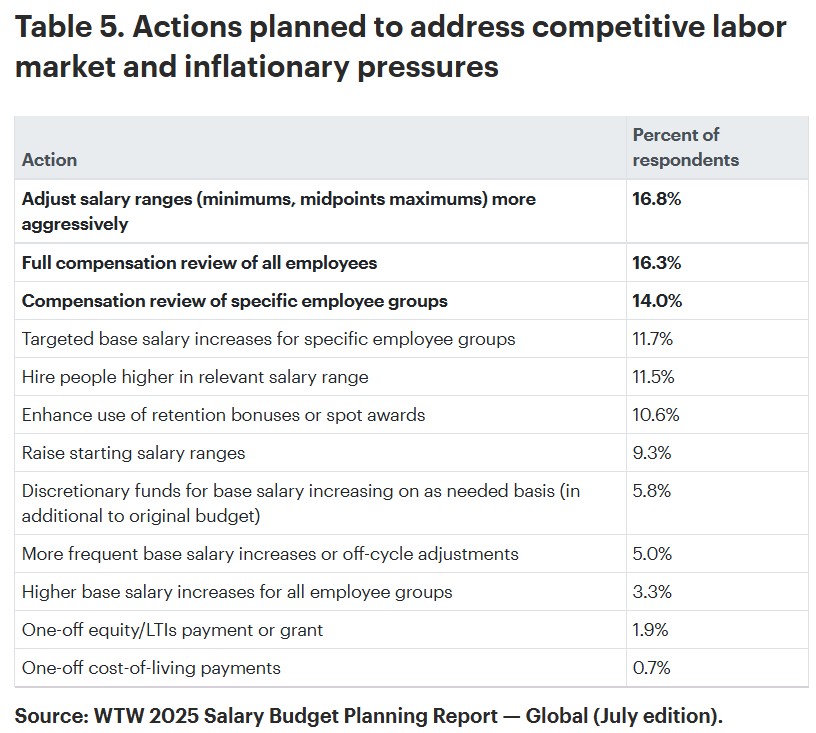
Anticipated recession or weaker financial results top reasons for salary budget adjustments

Salary budgets in Canada and the United States are projected to remain stable in 2026, according to the latest Willis Towers Watson (WTW) 2025 Salary Budget Planning Report — Global (July edition).
Employers in both countries are planning median salary increases of 3.5% for the coming year, matching the actual and planned increases for 2025.
|
Market |
2026 |
2025 |
2025 |
2024 |
|
Canada |
3.5% |
3.5% |
3.5% |
3.8% |
|
United States |
3.5% |
3.5% |
3.9% |
4.0% |
The top factors affecting salary budget adjustments include:
“While top-line budgets are generally holding steady, the real shift is happening beneath the surface: Organisations are being more deliberate about how they allocate pay, where they focus investment and what outcomes they expect to drive,” says Brittany Innes, director for rewards and data intelligence, WTW.
“Employers are no longer simply reacting to economic signals; they’re reimagining how to best support broader business goals despite uncertainty and using this moment to position themselves for what’s next.”
Canadians’ concerns about their personal finances have surged amid mounting economic uncertainty and market volatility, according to a previous report from BMO Financial Group.
Organisations that view compensation as a critical tool for improving business outcomes are putting in significant effort to ensure their pay strategies are responsive, equitable and effective, notes Innes.
Rather than relying on a single tactic, most are taking a multi-pronged approach — balancing broad-based increases with targeted adjustments and comprehensive reviews.
Many organisations report having already taken action within the past year in this regard:

Survey participants shared that their compensation strategies and pay practices will continue to see investment over the next year with continued focus on both broad and targeted compensation reviews as well as more aggressive range adjustments

Here’s how your organisation can take a more strategic approach to compensation planning, says Innes:
“The organisations that will lead in the years ahead are the ones using this moment to invest with intention,” she says. “History has shown that bold, well-informed moves made during periods of uncertainty often define the next generation of industry leaders. This is a moment to lead with confidence — not because conditions are easy, but because the tools, data and insights to make the right calls are in place.”
Employers cannot afford to ignore flexible pay and time off, according to one expert.